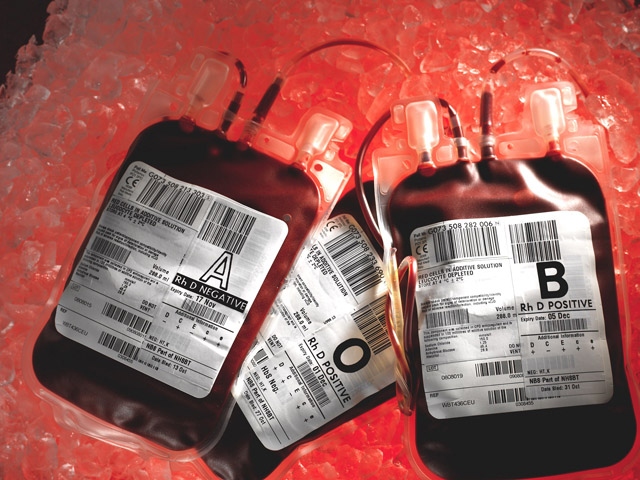Urgent appeal for black blood donors at Manchester donor centres
Date published: 26 April 2019

Manchester has two dedicated blood donor centres
Black people in Manchester are being urged to register to give blood after new figures revealed an urgent shortage of black donors in the city.
NHS Blood and Transplant needs 620 new black blood donors at Manchester’s two donor centres to help patients with sickle cell, a condition that mainly affects black people.
People from black African, black Caribbean and mixed heritage backgrounds are more likely to have the rare Ro blood subtype that is vital for sickle cell patients.
Sickle cell is the most common and fastest growing genetic disorder in the UK. Many of the 15,000 people living with the disease rely on frequent blood transfusions to lead normal lives.
Sickle cell can cause extreme pain, life-threatening infections and other complications such as organ failure, stroke or loss of vision.
Regular blood transfusions help to prevent or relieve the painful symptoms and complications.

Eme Achuzia, 28, from Cheetham Hill, is a blood donor. She knows how important donated blood is for sickle cell patients as her brother Simon, 31, has the condition and relies on frequent blood exchanges.
Tragically, Eme’s other brother Java died just before his third birthday from complications of sickle cell. Eme, who has a son Tyrell, six, has sickle cell trait but this does not prevent her from giving blood.
Eme said, “My brother has relied on blood since he was a child to lead a normal life. But sickle cell is a horrible disease and his health is very up and down.
At Christmas he became seriously ill and needed 11 units of blood to stabilise him.
As a mixed race woman myself, I know black people are likely to be a better match for other black people. I’ve seen how blood that isn’t well matched can cause a bad reaction.
I used to think I couldn’t give blood as I carry the sickle cell trait. But when I discovered I could, I registered and have given blood twice. It’s painless, takes 10 minutes, and saves lives.
The rise in sickle cell patients combined with the increased use of blood transfusions to treat the disease has seen demand for Ro blood soar by 80 percent over the last three years."
NHS Blood and Transplant urgently needs 40,000 new black donors to meet this demand and help sickle cell patients across England.
Around 620 new donors are needed over the next year across Manchester’s two city centre donor centres to help reach this target.
Around 11 percent of Manchester’s population is black. But black people currently make up only three percent of the city’s blood donor base.
Jayne Peters, NHS Blood and Transplant Haematology Consultant at Manchester Royal Infirmary, which is part of Manchester University NHS Foundation Trust, said, "More and more black people in Manchester are saving lives by donating blood but there is still a shortage of donors.
People from similar ethnic backgrounds are more likely to have matching blood but the shortage of black donors means more donors with similar blood are required to ensure the patients with sickle cell disease in Manchester continue to get the best matched blood.
Black people are ten times more likely than white people to have the vitally important Ro blood subtype, which is key for treating sickle cell disease. Sickle cell is a serious genetic disease that affects the red blood cells that carry oxygen around the body.
The patient's blood cells form into a sickle or crescent shape and they get stuck in blood vessels. Patients with sickle cell disease can have acute episodes of severe pain.
Sickle cell disease can also cause worsening sight, organ failure and stroke, the complications can be fatal. Blood donation is quick, easy and safe. You will save lives and feel proud.”
Do you have a story for us? Want to tell us about something going on in and around Oldham? Let us know by emailing news@oldham-chronicle.co.uk , calling our Oldham-based newsroom on 0161 633 2121 , tweeting us @oldhamchronicle or messaging us through our Facebook page. All contact will be treated in confidence.




